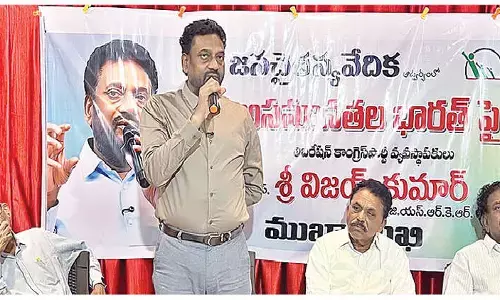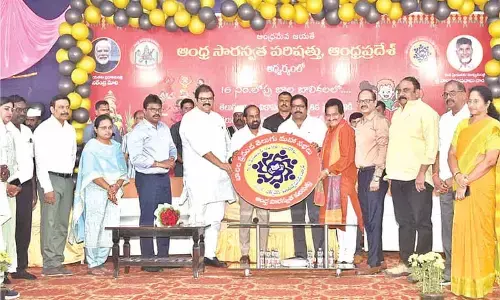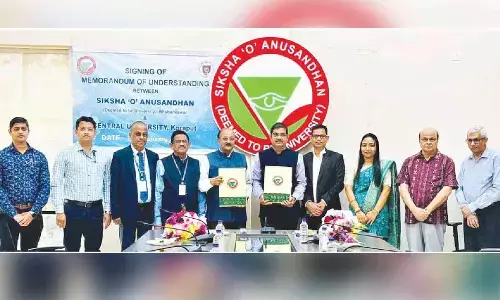Why B-schools need to engage in collaborative research

A globalised market place, disruptive technological innovations, changing consumption patterns and evolving consumer behavior has led to challenging the existing paradigms
A globalised market place, disruptive technological innovations, changing consumption patterns and evolving consumer behavior has led to challenging the existing paradigms. The premise of education in the current times, especially in the management domain, rests on shifting sands. Thus, the biggest challenge that B-schools today face is developing learning modules and curriculum that are topical enough to groom the managers of tomorrow. To address this uncertainty and transformation, the very simple mantra adopted by pro-active B-schools is research. Knowledge dissemination without knowledge creation is no longer conceivable, and hence a structured research strategy is at the helm of most leading B-schools functioning.
However, the dictate of developing contemporary thought and frameworks is not easy. The best of B-schools face constraints which may be in terms of funds or manpower, or both. Further, in case one is examining new phenomena like reverse consumer socialisation (the child mentors the parents/adults about novel practices such as mobile wallets and shopping) or revisiting established paradigms, most B-school may be at a loss to address the complexity of the phenomenon. However, to tweak an existing cliché - complexity is the mother of invention and innovation. As one examines closely the current management thought that is gaining ground with Academicians and practitioners alike is that collaboration rather than competition is the way forward. The first level of collaboration that B-schools need to look at is on home-ground, in terms of collaborative efforts across functional domains. The reason for this is that new and altered business scenarios are essentially complex and multi-dimensional.
For example, contextual or content-based marketing models have to be understood from the consumer behavior perspective as well as basic digital marketing strategies. At the same time one cannot ignore the IT interface that is the platform on which this occurs. Thus, to deliver comprehensive understanding of the phenomenon, research needs to be quintessentially cross-functional. This also goes for areas such as management of pricing across aggregated business models. The other form of collaborative research that B-schools need to undertake is industry-academia interface to comprehend new/altered phenomena. This, in fact, is not a new practice and has been there since the 1900s. Change management practices focused on impact of new strategic business relationships such as alliances, joint ventures, aggregator and outsourced functional models cannot be tabled unless the practitioner and academic partner come together to comprehend the novel phenomenon.
The third level of collaboration is equally critical as this prima-facie is institutional. Each school develops its own research focus and agenda. However, each entity in isolation - both geographically and basis orientation - will be able to conceptualise theories that at best may be restrictive. Thus, cross-institutional research collaboration is the only approach to deliver generalisable results. For example, to study Technology Adoption Behavior or Talent Management or Entrepreneurship Models; collaborations amongst B-schools across countries or regions will be able to collate information from diverse populations and therefore develop seminal models.
To summarise, the three C's of collaborative research mantras for B-schools:
* Concentrated or complimentary: Collaboration can be concentrated in a single area and school and contribute seminal thought or be based on allied school and domain collaboration.
* Cultural homogeneity or cultural heterogeneity: Collaboration is needed to assess behavior patterns e.g. Fantasy Sports Gaming that may be culturally uniform versus Investment Patterns that may have a contextual underpinning.
* Conceptual framework or concrete application: Whether the knowledge imperative is to develop conceptual models for disruptive innovation strategies or to work out on-ground multi-channel distribution strategies, the complexity demands that research be carried out in the zone of collaboration to deliver both comprehension and implementation. Thus, collaborative research is no longer a choice but a directive for B-schools today.
BY Neena Sondhi














